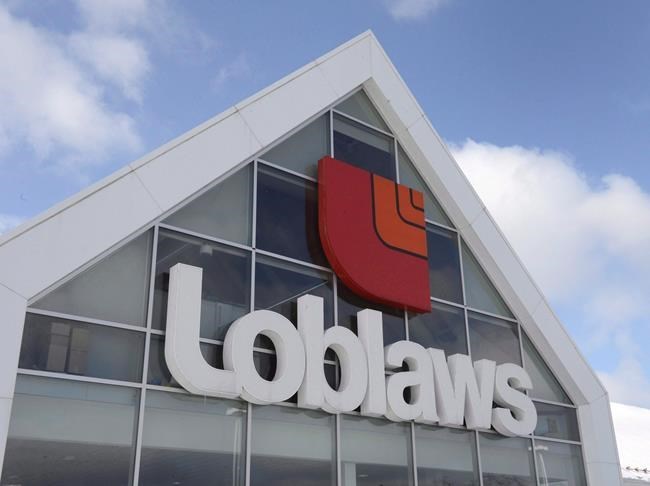As food manufacturers grapple with rising costs and supply chain issues, two of Canada's biggest grocers are signalling the potential for higher prices and the spotty availability of some products in the coming months.
Loblaw Companies Ltd. and Metro Inc. released their latest financial results on Wednesday, offering a glimpse at the inflationary pressures and labour challenges hitting the grocery industry.
The situation is expected to lead to higher food prices and brief shortages of some specialty products on store shelves, suggesting the pandemic could have a lasting impact on the food industry.
"There is meaningful commodity price pressures ... and then there's labour supply pressure," Galen G. Weston, Loblaw president and chairman, told analysts during a conference call. "Those two things are creating substantial challenges for our manufacturing base."
Weston said manufacturers are consolidating production into the highest volume products and putting secondary sizes and flavours on allocation, managing limited supplies by limiting retailers to finite amounts of some products.
"What customers will be frustrated to see is something's in stock for a week, and then it's out of stock for four or five weeks," said Weston, adding that he expects to see the instability continue for a few more quarters.
The situation is impacting the entire grocery industry in Canada.
Metro CEO Eric La Flèche told financial analysts that some products "continue to be hard to get supplied and to get the quantities that we would like."
"There are some key items where we are on allocations," he said. "The whole industry is."
It's not just grocery store shelves that are expected to be impacted by the pandemic's ongoing impact. The soaring cost of labour, shipping and commodities are driving up costs for food manufacturers, and many consumer packaged goods companies are seeking price increases.
"We are paying a lot of attention to cost inflation," Loblaw chief financial officer Richard Dufresne told analysts. "The number and size of cost increases requested by vendors has been elevated since the summer."
Loblaw's internal measures of inflation were slightly higher than the average quarterly national food price inflation of 2.6 per cent, the company said.
Metro said food basket inflation was about two per cent in its fourth quarter — double the one per cent recorded in the previous quarter.
La Flèche said meat and dairy products were the main drivers leading to higher costs at Metro grocery stores.
Statistics Canada said Wednesday the annual pace of inflation in October rose to 4.7 per cent as the consumer price index posted its largest year-over-year gain since February 2003. The increase followed a 4.4 per cent year-over-year increase in September.
Higher prices could benefit discount grocery chains — such as Food Basics for Metro or No Frills for Loblaw.
But Weston said the "acceleration in inflation rates and the lack of predictability in what inflation is going to look like in the coming months and quarters" makes it difficult to predict any sustained trends.
Loblaw beat expectations as it reported its third-quarter profit rose compared with a year ago, helped by strong demand in stores and online.
The country's largest grocery and pharmacy chain said it earned a profit attributable to common shareholders of $431 million or $1.27 per diluted share for the 16-week period that ended Oct. 9. The result compared with a profit of $342 million or 96 cents per diluted share in the same period last year.
Revenue in the quarter totalled $16.05 billion, up from $15.67 billion a year earlier.
Meanwhile, Metro reported its fourth-quarter profit rose compared with a year ago as its sales edged lower.
The Montreal-based grocery and drugstore retailer said it earned $194 million or 79 cents per diluted share for the 12-week period ended Sept. 25, up from a profit of $186.5 million or 74 cents per share in the same quarter a year earlier.
Sales in the quarter totalled $4.09 billion, down from $4.14 billion in the same quarter last year when the company says it saw exceptionally strong sales due to the pandemic.
This report by The Canadian Press was first published Nov. 17, 2021.
Companies in this story: (TSX:L), (TSX:MRU)
Brett Bundale, The Canadian Press

